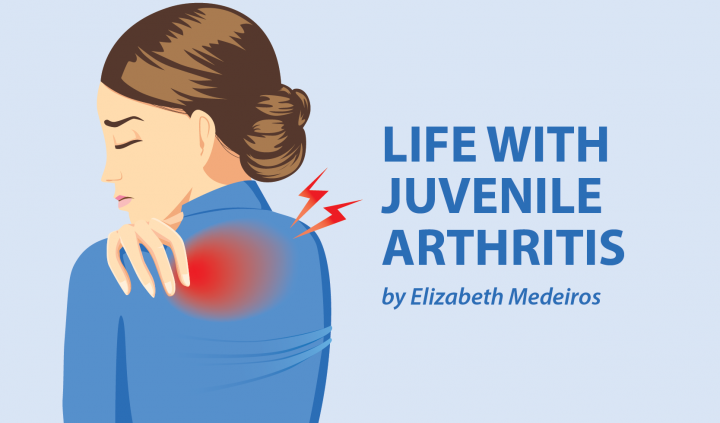A recent study concluded that children with juvenile arthritis (JA) who are active in making healthcare decisions had better treatment outcomes, quality of life, and school attendance. While the study was interesting, the results didn’t surprise me. I know that the more involved I was in my treatment plan, the better I did both physically and mentally.
In the study, doctors educated patients about treatments and alternatives and helped them choose the best option. Informed decision-making made kids more likely to adhere to a plan and less likely to stop disease-modifying anti-rheumatic treatments. That’s no small feat. It is a common issue parents face, particularly with teens.
Feelings of being dismissed
While it doesn’t mean your child should have complete control, it is a good idea to involve them during appointments with the pediatric rheumatologist. Learning about the treatments and having an opinion gives them some control over the situation. Kids and teens need to know their healthcare team cares about them and their input. Even when treatments’ side effects are intense, they’re easier to deal with when you have been part of the process.
Unfortunately, it’s common for young people to feel that their doctors are dismissing their pain, complaints about side effects, and concerns. When this happens, it’s easy to think a doctor does not have your best interests in mind. A child who feels out of control might refuse to take his or her medicine.
Same approach at home
Making informed decisions starts at home. Listen to your child’s concerns, especially those regarding side effects. Don’t dismiss them — acknowledge that you see an issue is troubling them.
After listening to your child, explain why things may be the way they are. Dismissing your child’s nausea as “just a side effect,” while accurate, won’t help. Instead, it might be a good time to talk about why the medicine was chosen and why it’s essential to give it a chance. Let your child know that these medicines need a lot of time to work and there likely won’t be instant relief. A child will be more compliant when given a reasonable explanation.
Don’t overlook small gestures, either. Keeping ginger ale and crackers on hand to combat nausea is a way of showing your child that you want to help.
Dealing with the doctor
Let your child talk with the rheumatologist — and make sure the doctor addresses questions directly to the child. Participating in appointments is empowering and develops advocacy skills. Encourage your child to make a list of questions before every rheumatology appointment, and do your best to help set realistic expectations. Let your child know the doctor cannot magically take away knee pain, but may be able to suggest exercises that will help over time.
If the rheumatologist doesn’t seem responsive, don’t be afraid to speak up. Make it known that you want your child’s input. Doctors can be intimidating, and your child deserves to feel that a provider cares. Even if there isn’t much the doctor can do, statements such as, “Let’s try using this medicine a little longer,” or, “Maybe we can think of ways to help you relax so the shot doesn’t hurt as badly,” are more comforting than, “You better make sure this medicine works,” or, “It’s not so bad.”
I have had physicians ignore my concerns and, although I now see it through an adult lens, it was hard to understand as a kid. I felt powerless and scared. I am still nervous when seeing new doctors for fear of being dismissed.
Life skills
For kids with JA, learning to talk to doctors is a necessity. The earlier they start, the more comfortable they will be advocating and making their own healthcare decisions. Plus, having a positive doctor-patient relationship can make frequent rheumatology visits less scary or boring.
My pediatric rheumatologist made a significant impact on me. Because he educated, I didn’t feel powerless. His openness to my input helped me feel confident in my healthcare decisions as an adult.
***
Note: Juvenile Arthritis News is strictly a news and information website about the disease. It does not provide medical advice, diagnosis, or treatment. This content is not intended to be a substitute for professional medical advice, diagnosis, or treatment. Always seek the advice of your physician or other qualified health provider with any questions you may have regarding a medical condition. Never disregard professional medical advice or delay in seeking it because of something you have read on this website. The opinions expressed in this column are not those of Juvenile Arthritis News, or its parent company, BioNews Services, and are intended to spark discussion about issues pertaining to juvenile arthritis.

